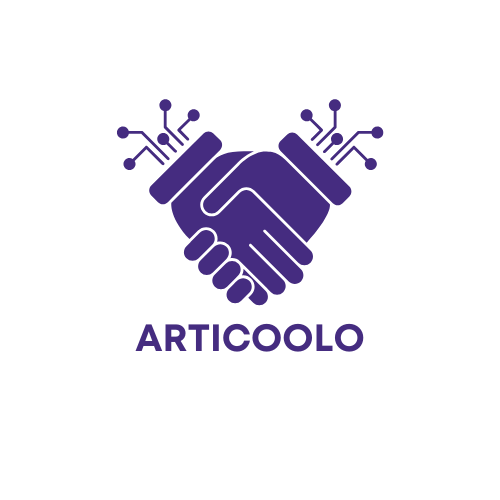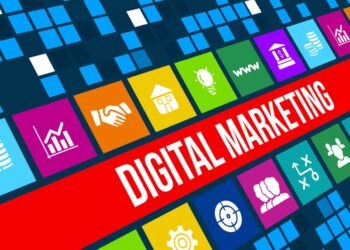In a world where content is king, AI has emerged as the clever court jester, turning traditional marketing strategies on their head. Gone are the days of sifting through endless data and brainstorming sessions that feel more like a game of charades. With AI in the mix, marketers can now harness powerful algorithms to create, optimize, and distribute content like never before.
Imagine having a tireless assistant who not only understands your audience but also predicts their next move. Sounds like something out of a sci-fi movie, right? But it’s happening now. From personalized recommendations to chatbots that sound like your best friend, AI is transforming the way brands connect with consumers. Buckle up as we dive into the fascinating ways AI is revolutionizing content marketing strategies, making it smarter, faster, and a whole lot more fun.
Understanding AI in Content Marketing
AI significantly transforms content marketing strategies, streamlining processes and enhancing audience engagement.
Definition of AI
AI refers to systems and technologies that enable machines to simulate human intelligence. These systems process data, learn from it, and make decisions. Examples include natural language processing, machine learning, and predictive analytics. Organizations rely on AI to analyze vast amounts of data efficiently. This analysis helps in identifying patterns and trends that influence customer behavior. Knowledge derived from AI informs content creation, ensuring relevance and effectiveness.
The Role of AI in Marketing
AI plays a pivotal role in modern marketing by automating tasks and optimizing strategies. It allows marketers to analyze customer data, enhancing targeting precision. Tools powered by AI personalize user experiences, tailoring content to individual preferences. Chatbots, for instance, engage users in real-time, providing instant support and guidance. Predictive analytics help anticipate consumer needs, enabling proactive marketing efforts. Strategies incorporating AI-driven insights lead to higher engagement rates and improved content performance across platforms.
Benefits of AI in Content Marketing
AI significantly enhances content marketing strategies through distinct advantages. Tools powered by AI streamline processes, boost efficiency, and personalize user engagement.
Enhanced Personalization
Personalization reaches new heights with AI. Marketers leverage advanced algorithms to analyze consumer data, tailoring content to individual preferences. Predictive analytics identifies behaviors, enabling timely recommendations that resonate with users. Moreover, AI-driven platforms adapt messaging based on engagement patterns, ensuring relevance. This level of customization leads to increased customer satisfaction and loyalty. Brands utilizing AI for personalized content report higher conversion rates and improved user experiences across various channels.
Improved Analytics and Insights
Analytics benefits remarkably from AI integration. Automated analytics tools process vast amounts of data much faster than traditional methods. They identify trends and patterns that inform effective strategy adjustments. Furthermore, AI-driven insights guide content performance assessments, revealing audience interactions and preferences. Regularly utilizing these insights allows marketers to refine their campaigns continuously, ensuring messages align with consumer expectations. This data-driven approach drives efficiency, helping brands allocate resources effectively and maximize their content’s impact.
AI Tools Transforming Content Creation
AI tools significantly enhance content creation by streamlining processes and improving efficiency.
Content Generation Tools
Content generation tools utilize AI algorithms to produce written content rapidly. These systems analyze existing data, identifying trends and topics that resonate with target audiences. Notable examples include platforms such as OpenAI’s GPT-3 and Jasper, which create articles, blogs, and marketing copy tailored to specific needs. Increased productivity allows marketers to focus on strategy rather than drafting. These tools also offer various customization options, ensuring content aligns with brand voice and messaging.
Image and Video Creation Technologies
Image and video creation technologies harness AI to automate visual content production. Tools like Canva and Lumen5 help marketers design engaging graphics and videos efficiently. AI analyzes available visuals and user inputs to suggest edits or generate new content based on trends. This capability enhances creativity while saving time. Marketers produce visually appealing, high-quality content that captures audience attention and fosters engagement across platforms.
Strategies for Implementing AI
Implementing AI in content marketing enhances efficiency and effectiveness. Several strategies facilitate the integration of AI with existing workflows.
Integrating AI with Existing Marketing Tools
First, assess the current marketing stack for compatibility with AI solutions. Tools that analyze customer data, generate personalized content, or automate marketing tasks can streamline processes. Next, opt for AI platforms that integrate seamlessly rather than requiring extensive changes. For example, many CRM systems now offer AI-driven analytics to predict customer behaviors. Lastly, ensure data consistency across platforms to avoid fragmentation, leading to accurate insights and effective targeting.
Training Your Team on AI Technologies
Training the marketing team on AI technologies remains essential for maximizing benefits. First, conduct workshops to build familiarity with AI tools and their applications in content marketing. Engaging sessions can showcase case studies and best practices. Secondly, encourage ongoing learning to keep team members updated on the latest AI advancements. Online courses and certification programs can further enhance skills. Providing resources, like user manuals and access to developer support, fosters confidence in utilizing AI effectively. A well-trained team will leverage AI’s full potential, improving overall marketing outcomes.
Challenges and Considerations
AI’s rapid integration in content marketing introduces several challenges that marketers must navigate.
Ethical Concerns in AI Usage
Ethical implications arise with AI’s ability to analyze consumer data. The potential for misusing personal information poses significant risks. Establishing transparency in AI operations is crucial to maintain consumer trust. Regulations may evolve to address privacy concerns, requiring marketers to adapt quickly. Compliance with data protection laws, like GDPR and CCPA, shapes effective AI strategies. Maintaining ethical standards ensures brands remain accountable while leveraging AI for insights.
Balancing Human Creativity with AI
Creativity remains a vital aspect of content marketing, despite AI’s capabilities. Human intuition and emotional intelligence drive authentic connections with audiences. Relying solely on AI can lead to a generic approach that may overlook unique brand voices. Incorporating AI-generated suggestions responsibly enhances the creative process without replacing it. Teams must focus on collaboration between human insight and AI efficiency. This balance fosters innovative ideas while utilizing AI’s strengths in data analysis and trend prediction.
Conclusion
AI is undeniably transforming content marketing strategies in profound ways. By enhancing personalization and optimizing analytics, it empowers marketers to connect with their audiences more effectively. The integration of AI tools streamlines content creation and boosts efficiency, allowing teams to focus on strategic initiatives rather than mundane tasks.
While challenges exist, such as ethical considerations and the need for human creativity, the collaboration between AI and human insight can lead to innovative solutions. As marketers embrace these advancements, they’ll find themselves better equipped to navigate the evolving landscape and meet consumer expectations. The future of content marketing is bright with AI at the helm, driving engagement and fostering deeper connections.















Discussion about this post